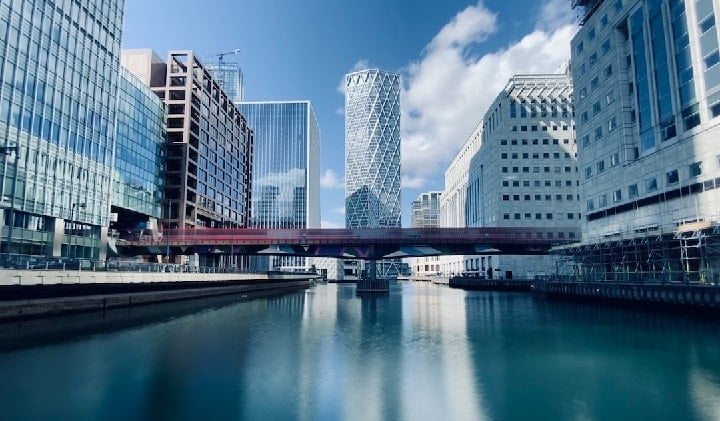The private sector has a responsibility – and, in the long term, arguably a commercial imperative – to tackle inequalities through the levers that it can pull directly: improving pay and working conditions, tackling inequalities in recruitment and promotion, encouraging workers to unionise, ensuring that their products and services are produced and priced fairly, and so on. The responsible business agenda is firmly established, and we have seen some progress in recent years, even if there is still a long way to go.
But it also has a huge opportunity to make the case for the state to do more to tackle inequalities. As the Business Commission to Tackle Inequality noted in its recent report, Tackling inequality: An agenda for business action, “business has a profound influence on the policymaking process and its outcomes”. The report quotes the World Economic Forum, which argues that corporate political influence represents “the greatest impact a company can have on protecting, or harming, the environment and society.”
The BCTI report runs through the business case for lobbying governments to tackle inequalities: fostering trust and building reputation, staying ahead of the regulatory curve when it comes to disclosure, and meeting stakeholder and investor expectations. We would argue that there are plenty more reasons, all of which will impact on business bottom lines in the long term, as well as on our society, economy, democracy and planet. We’ve listed nine of them below.
In the case studies section of the chapter on supporting effective public policy, the BCTI report focuses on examples of businesses lobbying governments to tackle discrimination against people on the grounds of their ethnicity, gender and sexuality. Fantastic. But it’s hard not to notice that there are no examples of businesses lobbying governments to tackle socio-economic inequality.
Why is this? It seems unlikely that the problem is the absence of a compelling business case. There are many ways in which tackling socio-economic inequality will generate outsize returns for the economy (while also benefiting businesses), such as improving the skills, health and productivity of the workforce, boosting the purchasing power of consumers, and building up the intangible glue that holds our society together based on mutual trust and social cohesion. On the flip side, the risks to our society and economy – and to businesses – of letting socio-economic inequality fester grow bigger by the day, and should be at or near the top of any corporate risk register.
In some cases, this reticence will be due to political preferences (for example, preferring free markets with minimal government intervention). In others, the barrier might be an unwillingness to come out in public with an agenda that could be conceived as political. But in still other cases, the barriers might be more surmountable – a tendency to focus on short-term issues at the expense of longer-term opportunities and risks, or simply a lack of clarity about how best to engage.
There is a long tradition of benevolent capitalists who have spoken out about, and acted to address, socio-economic inequality in the UK – from Titus Salt and the Quaker entrepreneurs such as the Rowntrees and the Cadburys, to Anita Roddick at the Body Shop and Simon Marks at M&S. Our own founder and chair Julian Richer was on the Today programme on BBC Radio 4 on Friday morning, making the case for action on inequality.
We would very much like to see other business leaders joining them. We think there is an opportunity to persuade more businesses and others in the private sector – including investors – to engage with government on tackling socio-economic inequality, and we intend to explore this more over the coming months.
Nine reasons why businesses should speak out about the need for a fairer Britain
Harmony. In prehistory, humans flourished by building large social groups based on co-operation, and sustained by fairness: equalising rewards across a group, sharing resources fairly and punishing selfish behaviour. Societies that do not uphold this inbuilt sense of fairness become more divided and turbulent, and less successful; many collapse. Fairness is the lubricant that maintains social cohesion.
Opportunity. Fair opportunities benefit all of us. If talented people from disadvantaged backgrounds are unable to fulfil their potential, it harms productivity and growth, causes resentment and creates costs for society. Opportunity is about prioritising people’s freedom to develop and maximise their capabilities over their freedom to accumulate unlimited wealth at the expense of everyone else.
Politics. Unfairness undermines healthy democracies by giving the wealthy excessive political influence, undermining democratic principles (including the rights to vote, to run for office, and to free speech and assembly), and creating dangerous divisions in society. It also undermines faith in the democratic system itself; if people do not have a fair opportunity to make the most of their lives, they are more likely to be attracted to populists or even extremists. Fairness prevents democratic decline.
Equality. Social problems are worse in more unequal societies. Many affect everyone, such as high levels of crime and low levels of trust, social cohesion and mental health. Inequality leads to levels of infant mortality that are higher among wealthy Britons than, for example, poorer Swedes. Reducing inequality will give everyone genuinely equal opportunities to contribute to society (see above).
Risk reduction. Fair societies provide universal, reciprocal, collective insurance systems to protect everyone against the risk of suffering bad luck, such as serious disease or loss of employment. They ensure that major costs such as social care are shared fairly rather than falling entirely on individuals.
Institutions. A fairer society based on much lower levels of inequality than we see today is necessary to support effective social, economic and political institutions, which are themselves needed to protect and advance a health democracy, society and economy (and a sustainable environment).
Security. People living in fair societies don’t have to accrue private wealth (such as through housing) to ensure that they and their children will be able to withstand shocks or to get on in life. They feel less pressure to pass down inherited wealth to their children as the only guarantee of security. Unequal societies create vicious circles in which people maximise their own wealth in order to protect their loved ones. A lack of economic security creates the conditions for deteriorating physical security.
Efficiency. Unfair societies harm economic growth because they undermine efficient markets. The poor don’t spend money while the rich hoard it offshore. The link between hard work and reward is corrupted when a lot of wealth is unearned, failure is rewarded and fair and open competition is undermined. High levels of inequality dampen both demand and output. Fairer societies are more efficient, more productive and more prosperous. Fairness can help to save capitalism from itself. There is no trade-off between fairness and growth; on the contrary, fairer societies see higher growth.
Social mobility. The ‘Great Gatsby curve’ shows that, as economic equality decreases, so does social mobility. In very unequal societies it is much harder for people to move up the ‘ladder’, because the rungs are further apart. The consequences of moving down the ‘ladder’ are also much more serious.
This article was previously published on Fair Comment.










